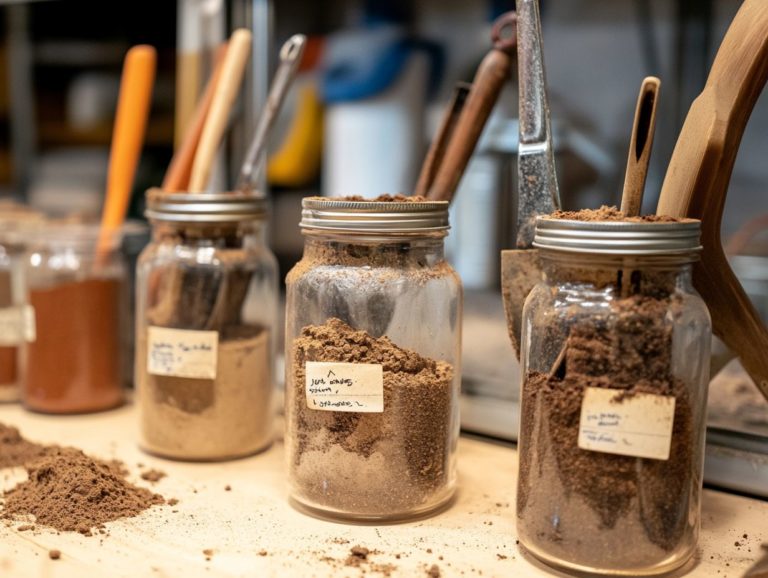How to Create a Permeable Driveway
Permeable driveways are not just an eco-friendly trend; they are a sophisticated and practical solution for homeowners like you who want to enhance your property s functionality while making a positive impact on the environment through sustainable landscaping.
Discover how permeable driveways can transform your home and protect the planet! This article outlines their many advantages, the various materials and designs available, including special bricks that allow water to pass through, and essential factors to consider before installation. You will also find a comprehensive, step-by-step guide for creating one, along with tips for maintaining it to ensure its longevity.
Additionally, it provides a detailed breakdown of costs, including maintenance expenses and the potential return on investment you can expect. Whether you re contemplating a new driveway or simply exploring eco-friendly options, this guide is tailored to meet your needs.
Contents
- Key Takeaways:
- Benefits of Permeable Driveways
- Types of Permeable Driveways
- Factors to Consider Before Installing a Permeable Driveway
- Installation Process for Permeable Driveways
- Maintenance and Care for Permeable Driveways
- Costs and Return on Investment for Permeable Driveways
- Frequently Asked Questions
- What materials are needed to create a permeable driveway?
- How do I prepare the site for a permeable driveway?
- Do I need to obtain any permits before creating a permeable driveway?
- Can I use any type of pavers for a permeable driveway?
- How do I maintain a permeable driveway?
- Are there any advantages to having a permeable driveway?
Key Takeaways:
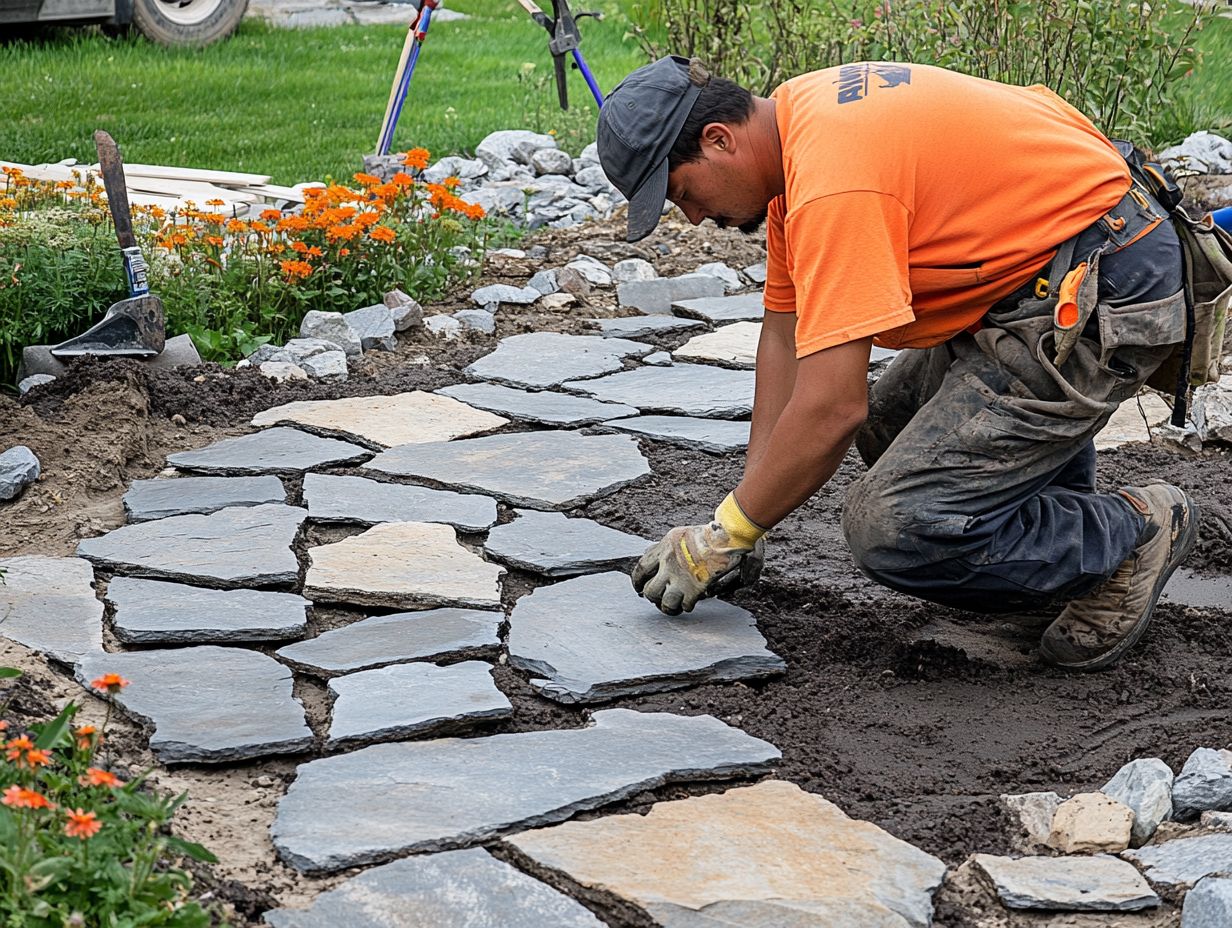
- You’ll enjoy both environmental and practical benefits with permeable driveways.
- It is crucial to assess soil and drainage conditions and obtain necessary permits before installation.
- Proper maintenance and care can increase the longevity and functionality of a permeable driveway, making it a cost-effective investment.
What are Permeable Driveways?
Permeable driveways represent a cutting-edge solution that enhances your outdoor spaces by allowing water to seep through the surface. This significantly reduces stormwater runoff, which is water that flows over surfaces when it rains, and improves stormwater management. These driveways utilize special bricks or materials that are not only environmentally sustainable but also contribute to effective stormwater management and groundwater recharge. Choosing this option elevates your landscaping while demonstrating a commitment to sustainability.
These pavers come in a variety of shapes and sizes, thoughtfully engineered with spaces or openings that facilitate water flow through the surface and into a subsurface layer of gravel or soil. This intelligent design minimizes flooding and filters out pollutants, promoting cleaner water quality.
The ecological benefits are hard to overlook. They help reduce the heat island effect and foster biodiversity in urban environments. As cities increasingly acknowledge the importance of sustainable practices, the popularity of permeable driveways continues to rise, reflecting a broader trend in urban planning that balances functionality with environmental stewardship.
Benefits of Permeable Driveways
Permeable driveways present a wealth of benefits that make them appealing choices for homeowners and urban planners alike. They provide eco-friendly solutions that enhance drainage systems and promote runoff reduction through improved soil absorption and water infiltration.
The advantages extend beyond environmental considerations; they also aid in erosion control and can notably elevate property value and curb appeal. Embracing this option is not just a savvy choice for outdoor spaces it s a strategic investment in your property s future.
Environmental and Practical Advantages
Permeable driveways offer significant environmental and practical advantages. They recharge groundwater and support sustainable landscaping, which are crucial for today s urban areas.
They not only reduce surface accumulation and sediment pollution but also help cut down on maintenance costs compared to traditional pavers or surfaces that lack effective drainage. This makes them a resilient driveway option.
Research shows permeable driveways can reduce stormwater runoff by up to 90%. This makes them ideal for cities facing water management challenges and enhances groundwater supplies. The design of these driveways allows rainwater to seep through, replenishing underground layers of water-bearing rock and lowering the risk of flooding through effective stormwater management techniques.
As a homeowner, you ll enjoy lower long-term costs. A study found residents saved an average of 30% on maintenance expenses after switching to permeable solutions, underscoring their financial and environmental advantages, including potential tax incentives for homeowners.
Types of Permeable Driveways
Knowing the types of permeable driveways helps you choose eco-friendly options that improve drainage.
You ll discover exciting options to choose from, including permeable pavers, porous concrete, gravel driveways, and innovative paving options like paving stone. Each of these materials offers unique benefits and aesthetic choices, giving you the design flexibility you desire while differing from traditional pavers in both installation process and functionality.
Comparing Materials and Designs
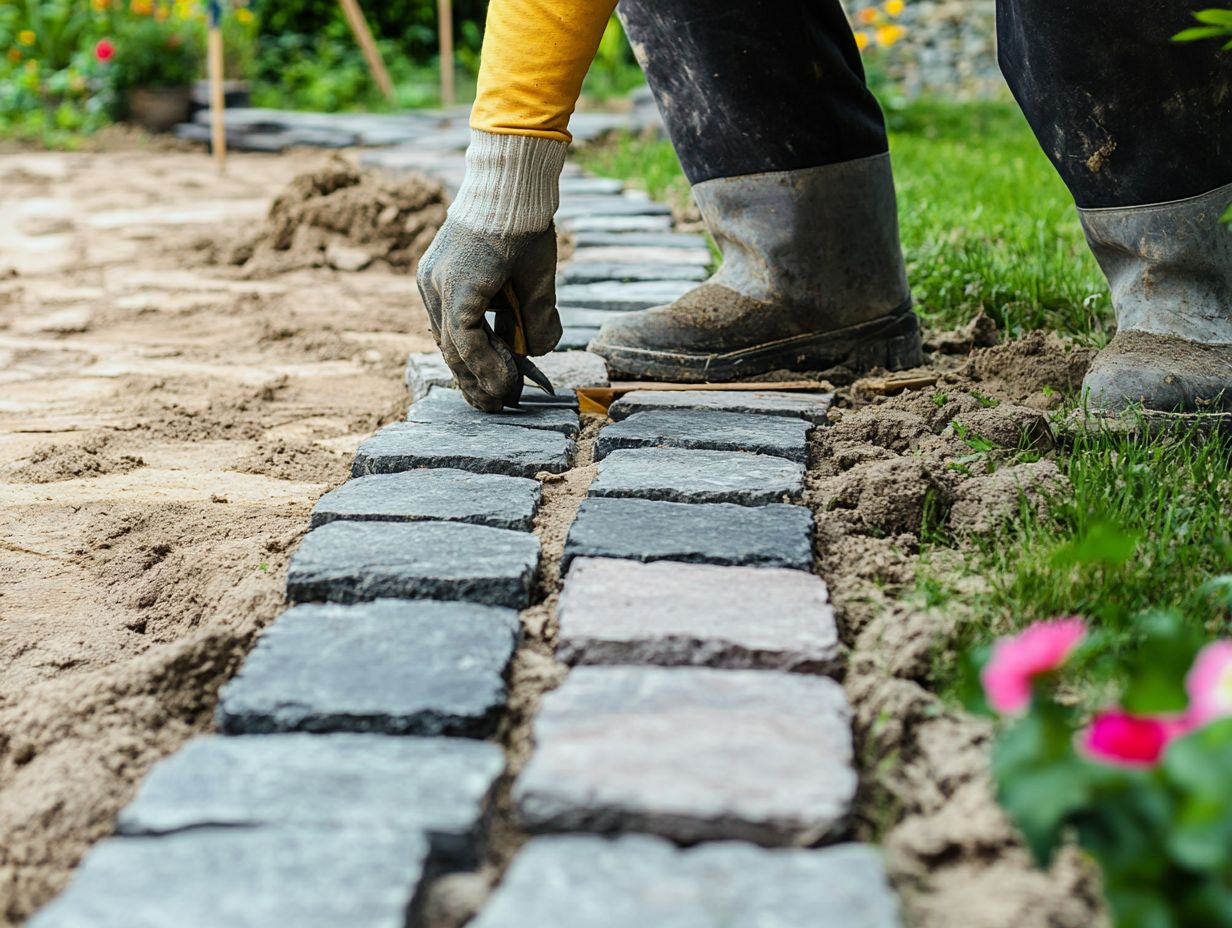
When evaluating materials, you ll find a variety of options. These include permeable pavers, porous concrete, flagstone, and gravel. Each choice brings its own blend of aesthetics and functionality, catering to diverse homeowner needs and preferences.
Take permeable pavers, for example; they allow water to filter through while providing a sturdy surface for vehicles, marrying strength and elegance effortlessly. They can also be complemented with ground cover plants for added beauty. On the flip side, porous concrete offers a sleek finish but requires precise installation to maximize its effectiveness.
If you re drawn to the rustic charm of flagstone, keep in mind that while it can enhance your landscape s appeal, it may not match the permeability of some other options, potentially leading to pooling issues related to surface accumulation. Gravel driveways, while often the most budget-friendly, excel in drainage but may demand regular upkeep to prevent weeds and maintain their aesthetic allure.
Your decision should focus on balancing aesthetics and practical needs, including the choice of base materials and paving techniques, ensuring your driveway not only looks good but works effectively too.
Factors to Consider Before Installing a Permeable Driveway
Before you install a permeable driveway, it s essential to consider several key factors. Start by assessing the soil and drainage conditions on your property, ensuring compliance with municipal regulations related to permeable hardscapes.
Don t overlook the local climate, as this can significantly impact both the installation process and long-term performance. By understanding these variables, you can ensure that the permeable materials and techniques you choose will function effectively in your unique outdoor environment.
Explore your options further and consider consulting with a professional to make the best choice for your driveway!
Assessing Soil and Drainage Conditions
Assessing soil and drainage conditions is vital for the successful installation of permeable driveways, particularly for evaluating soil absorption and permeability. This evaluation determines the soil’s absorption capacity and the overall effectiveness of permeable surfaces in managing stormwater.
A comprehensive analysis can uncover potential challenges, ensuring that the materials you choose will deliver optimal water infiltration and drainage performance.
There are several methods available for evaluating these conditions, such as soil sampling and laboratory testing. These techniques help measure essential parameters like soil texture, permeability, and moisture content. By interpreting these results accurately, you can identify the most suitable permeable materials, ensuring they meet the specific drainage requirements of your site and promoting effective stormwater management.
Understanding the characteristics of the soil significantly impacts your installation strategies. This knowledge will guide your decisions on grading, material layers, and overall design, ultimately promoting a sustainable approach to managing surface runoff and enhancing the longevity of your hardscape installations.
Permits and Regulations
Navigating municipal regulations is a crucial step in the installation process for permeable driveways. It ensures that you meet the necessary drainage requirements while upholding environmentally friendly standards that promote sustainable landscaping.
It’s essential to familiarize yourself with the specific permits and regulations in your area before diving into the installation process. This preparation helps you avoid complications and ensures that your driveway functions as intended, particularly regarding runoff reduction and drainage systems.
Local authorities often require various permits, such as site plan approval or environmental impact assessments, to assess how the permeable surface will interact with existing water management systems. For instance, neglecting to secure the correct permit could not only land you with hefty fines but may also necessitate the costly removal of non-compliant installations.
Understanding these regulations is key to preventing issues like water pooling or flooding, which can stem from improper drainage and negatively impact your property value. By adhering to these guidelines, you not only contribute to sustainable water management practices but also elevate the overall aesthetic value of your property and enhance the appeal of your outdoor spaces.
Start your journey towards a sustainable driveway today by understanding local permits!
Installation Process for Permeable Driveways
The installation process for permeable driveways encompasses several crucial steps that guarantee the driveway not only functions effectively but also aligns with your aesthetic preferences and commitment to environmental responsibility.
Start with thorough site preparation, which includes laying an aggregate base. Then, meticulously place permeable pavers to ensure a successful DIY installation or professional finish.
Step-by-Step Guide
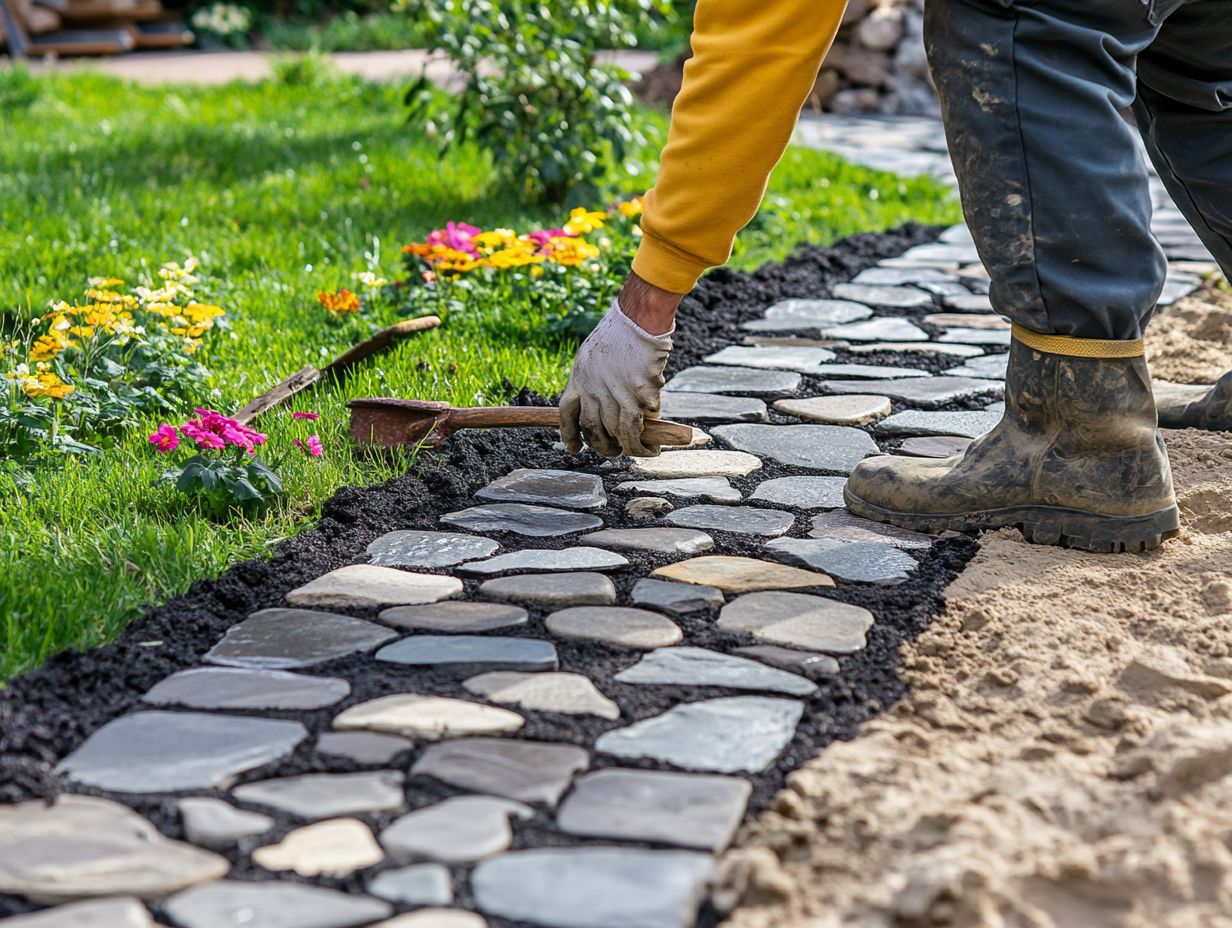
A meticulous guide to installing permeable driveways involves key phases. These phases span from selecting the right permeable materials to perfecting the structure with effective systems that manage water flow, ensuring optimal water infiltration and functionality.
Each step, executed with precision, significantly contributes to the longevity and performance of your permeable driveway.
To kick off this process, careful planning is paramount. You should assess your site carefully. Determine which type of permeable surfaces will best suit your environment.
Consider crucial factors like soil quality and local rainfall patterns to make an informed choice.
Once your planning is in place, preparation is next. This may involve clearing the area of debris and laying down a stable sub-base that can effectively support the permeable materials.
During the installation phase, you’ll strategically place your chosen permeable pavers or gravel, ensuring proper grading for optimal water flow.
Don’t overlook ongoing maintenance; it s essential. Regularly inspect for blockages and ensure that sediment doesn t compromise your system.
Addressing these potential issues early can save you from costly repairs and guarantee that your driveway remains functional for years to come.
Maintenance and Care for Permeable Driveways
Keep your permeable driveway in top shape! Proper maintenance is key to its longevity and optimal functionality.
This attention not only helps minimize maintenance costs but also extends the life of the eco-friendly materials used.
Regular upkeep, including thorough cleaning and inspections, is essential to prevent clogging and maintain effective water infiltration.
Tips for Longevity and Functionality
- Regularly clean your driveway using a leaf blower or broom.
- Inspect it every season for early signs of wear or blockage.
- Use a biodegradable cleaner for deeper cleaning.
- Apply a permeable-specific sealant every couple of years.
- Manage surrounding vegetation to minimize soil erosion.
Costs and Return on Investment for Permeable Driveways
Understand the costs and benefits of permeable driveways. This choice can enhance your property s value and save you money in the long run!
Installation expenses and ongoing maintenance costs significantly influence the overall financial landscape.
By investing in permeable driveways, you not only enhance your property s value but also have the potential to reduce long-term expenses tied to traditional paving solutions.
Comparing Costs and Benefits
When you compare permeable driveways to traditional pavers, you’ll find some exciting differences that can impact your choices. Think about eco-friendly practices and the long-term financial benefits!
Although the initial installation might be higher, the perks like lower maintenance costs and improved curb appeal can lead to considerable savings and an increase in property value over time, demonstrating the advantages of permeable hardscapes.
For example, a typical permeable driveway can set you back between $15 to $30 per square foot, depending on the materials and design. In contrast, traditional options usually fall within the $8 to $15 per square foot range.
The long-term savings come from reduced rainwater runoff management costs, which can often be an overlooked expense. Research indicates that permeable systems can reduce the chances of flooding and lower stormwater fees.
A higher initial expense may seem daunting, but by making this upfront investment, you not only enhance your property’s sustainability but also enjoy diminished repair and replacement costs down the line. Imagine enjoying all these perks while boosting your home s value!
Frequently Asked Questions
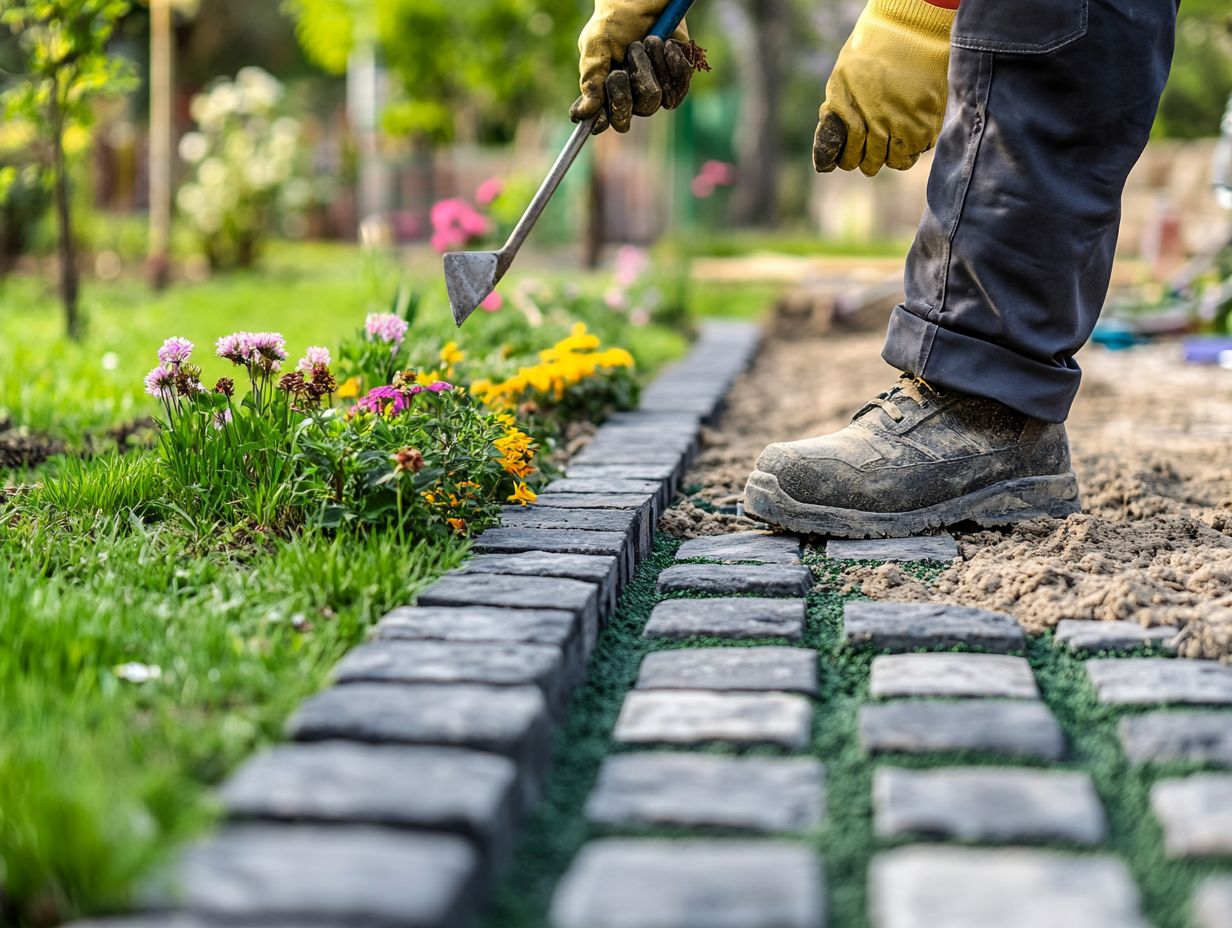
Here are some common questions about permeable driveways:
What materials are needed to create a permeable driveway?
- Permeable pavers or gravel
- A special fabric that helps with drainage
- Gravel base
- Edging materials
- Compactor
How do I prepare the site for a permeable driveway?
The site for a permeable driveway should be excavated to a depth of at least 12 inches. It should be graded to ensure proper drainage, cleared of debris, and compacted using a compactor.
Do I need to obtain any permits before creating a permeable driveway?
Depending on your location, you may need to obtain a permit from your local government. It’s important to check with your local authorities before beginning any construction.
Can I use any type of pavers for a permeable driveway?
Permeable pavers are specifically designed to allow water to pass through them. It’s important to use the right type of pavers, usually made of concrete, brick, or stone, which have spaces between them for water to drain.
How do I maintain a permeable driveway?
Maintaining a permeable driveway is similar to maintaining a traditional driveway. Regular sweeping and occasional pressure washing are recommended. It is also important to check for any clogs in the drainage system and clear them out if necessary.
Are there any advantages to having a permeable driveway?
Yes, there are several advantages to having a permeable driveway. It allows for better drainage and prevents water from pooling, which can damage traditional driveways. It also helps to reduce erosion and filter pollutants from rainwater, improving water quality.
Ready to transform your driveway? Explore your options today!



